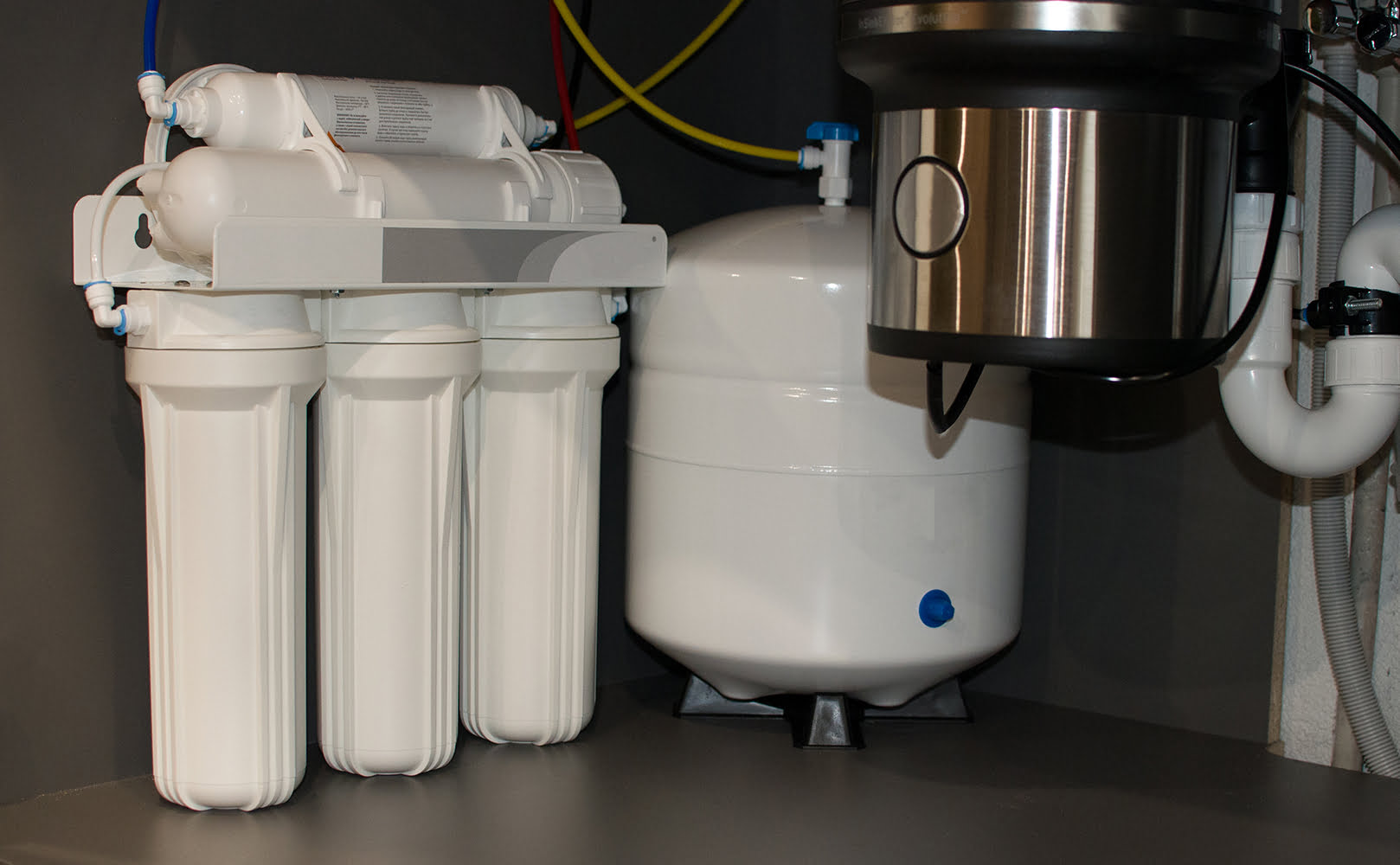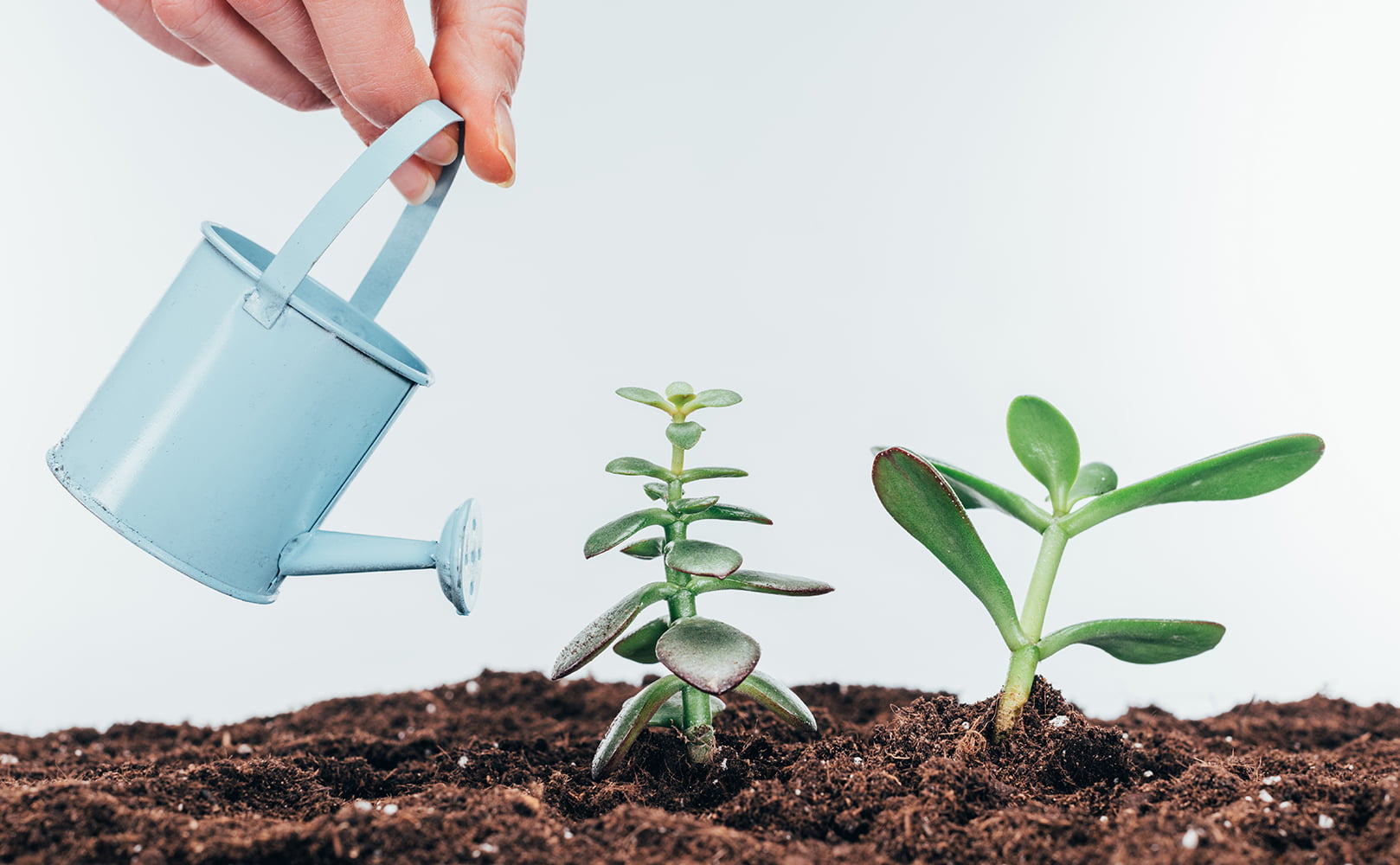Is Reverse Osmosis Water Better Than Rain Water for Plants?
Written by: Alexandra Uta // Last Updated: Dec 30, 2022
This page may contain affiliate links. If you buy a product or service through such a link we earn a commission at no extra cost to you. Learn more.
Often, reverse osmosis water is a better source of water for your plants than tap water, as it contains fewer contaminants.
But is reverse osmosis water better than rain water for your plants, too?
Let’s find out!
Key Takeaways
- Rain water and RO water are both excellent for plants, but RO is better because you can strictly control what you add to it.
- Both rain water and RO water have similar pH, water hardness, and alkalinity levels.
- RO water has a higher cost of use, maintenance, and setup than rain water, though rain water is often not as readily available.
Is Reverse Osmosis Water Better Than Rain Water for Plants?
Water pH
Rain water doesn’t have very many dissolved minerals, so it is considered to be on the acidic side (around 5.5 once it falls to Earth). Most plants grow best with a ph of 5.5-6.5. So no problem there!
Most reverse osmosis water has a pH of around 6.0-6.5 – not bad either!
Besides, plants can handle minor fluctuations from their ideal pH range, so this isn’t too big of a deal.
Water Alkalinity
Water with a high alkalinity can combine with nutrients in the soil and form white deposits on top of it. This can raise the pH of the soil, which may cause issues with your plants. Both rain water and RO water have very low alkalinity levels, making them great options for your plants.
Water Hardness
Water hardness is measured by the amount of calcium and magnesium in your water. A little bit makes it soft water, and a lot means it is hard water.
Under 3.5 gpg (grains per gallon) is soft, and over 7 is hard. Rain water measures under 3.5, and RO water is also soft as reverse osmosis filtration removes any calcium and magnesium in the water.
That said, while you can use hard water for your plants, there is a chance it may damage some species, especially delicate ones.
What Is RO Purified Water?
RO water is water that has been pushed through a semipermeable membrane. This membrane has tiny pores that allow the H2O molecules through but prevent almost any other stuff like chemicals and heavy metals from moving with it. It creates almost completely pure water.
Free from Chlorine and Other Contaminants
Municipal water supplies are usually treated with chlorine to make it safe for human consumption.
Unfortunately, chlorine isn’t suitable for plants in large quantities. It can cause issues in more sensitive plants such as dracaenas, ti plants, spider plants, prayer plants, calatheas, and carnivorous plants.
A reverse osmosis system uses a carbon pre-filter to make sure that chlorine is removed. Other contaminants, such as arsenic and lead, are also removed, which is important if you are growing plants you plan to ingest.
Pros & Cons of Using Reverse Osmosis Water for Plants
RO water is great for your plants if it is adequately remineralized. It does come with some cons, though, particularly when it comes to cost and wastage. The pros and cons of RO water usage on plants include:
- Removal of most contaminants
- Improved plant growth
- Complete control of water quality
- Removal of beneficial minerals
- Initially high setup costs, plus ongoing expenses for filter replacements and maintenance.
- Lots of water wastage, around 3-5 gallons for every 1 gallon of filtered water.
Pros & Cons of Using Rain Water for Plants
While rain water sounds like an ideal (and free!) source of water for your plants, it also comes with some pretty big cons. The advantages and disadvantages of using rain water for your plants are:
- Reduction in water bills
- Low-cost maintenance (once you have a water harvesting system set up)
- Ideal for irrigation water
- Reduces groundwater demand
- Lowers prevalent floods and soil erosion
- It relies on rainfall, which may be unreliable
- Regular checkups and cleaning are needed if you have a water harvesting system set up
- High setup costs for a water harvesting system
- Chemicals from roofs or pipes can contaminate the water while you harvest it
What Can I Add to the Water I Use for My Plants?
Plants need certain minerals to grow properly, and unfortunately, RO removes them. Luckily, it is easy to add the minerals back into your water supply in the correct doses for the particular plant you are watering.
Calcium/magnesium solutions and fertilizer salts are two readily available options. If the pH of your water measures too high, you could use an acidic fertilizer to lower it.
Other Types of Water
Softened Water
Softened water is different from soft water. Soft water is natural, softened water is made by cation exchange. While natural soft water is good for plants, softened water is not, as it contains too many salts that could cause harm.
Distilled
Distilled water is similar to RO water in the sense that the water is very pure but also lacking in essential minerals for the plant. They will need to be added back into the water or soil somehow. Also, distillation is a time-consuming process that may not be suitable for large-scale plant watering.
Spring
Oxygen and mineral-rich spring water is a fantastic option for your plants if you can get your hands on enough! It has minimal impurities and harmful chemicals, but there can be issues when it comes to accessing it, and storing it can cause the growth of bacteria and other pathogens.
Tap
While tap water is cheap, accessible, and okay for many plants that are not chlorine sensitive, it isn’t the best option for your plants to thrive, as its contents can be too variable, and it may be providing your plants with contaminants.
If you have any thoughts about the question, is reverse osmosis water better than rain water for plants, please don’t hesitate to leave a comment below!
Information provided on BOS is for educational purposes only. The products and services we review may not be right for your individual circumstances.
We adhere to strict editorial guidelines. Rest assured, the opinions expressed have not been provided, reviewed, or otherwise endorsed by our partners – they are unbiased, independent, and the author’s alone. Our licensed experts fact-check all content for accuracy. It is accurate as of the date posted and to the best of our knowledge.



